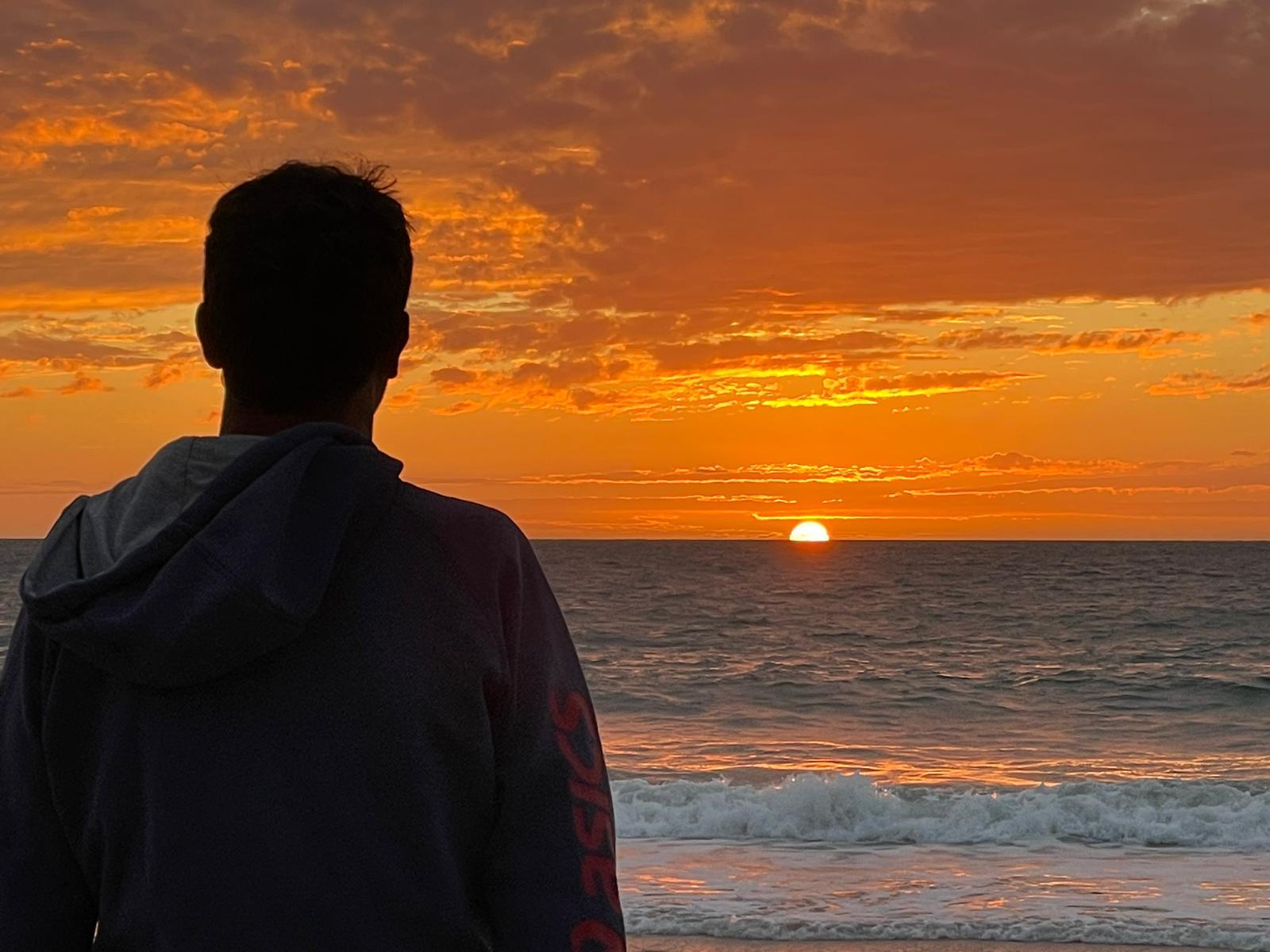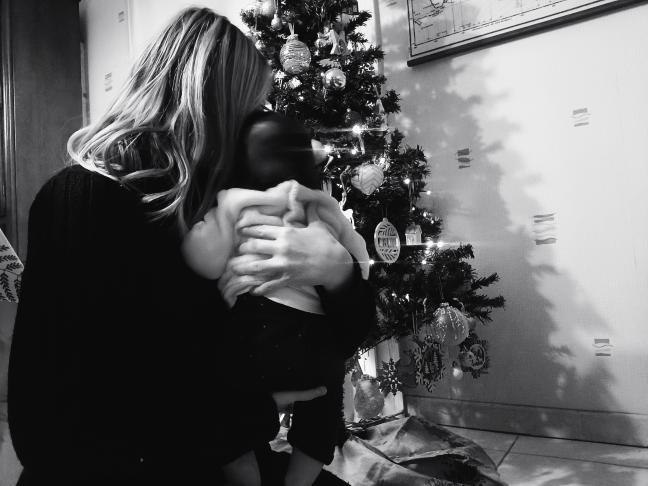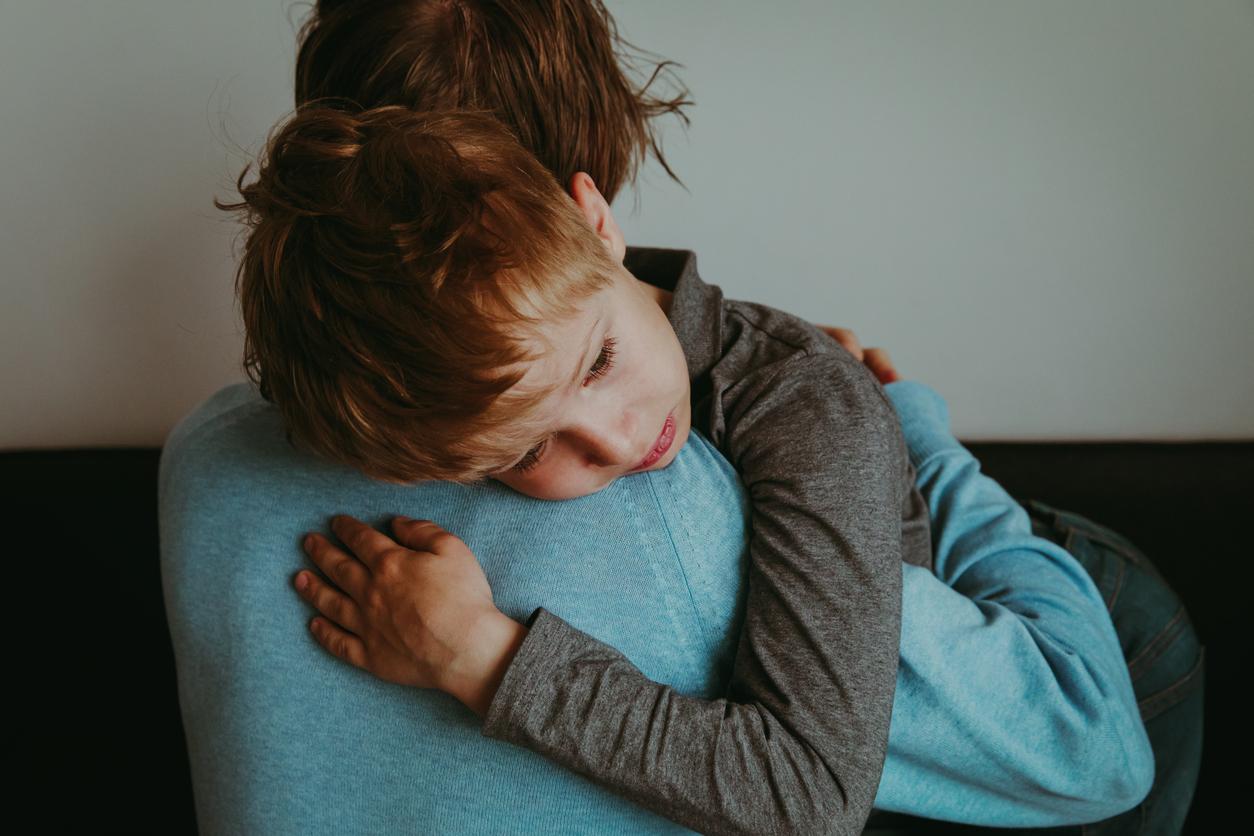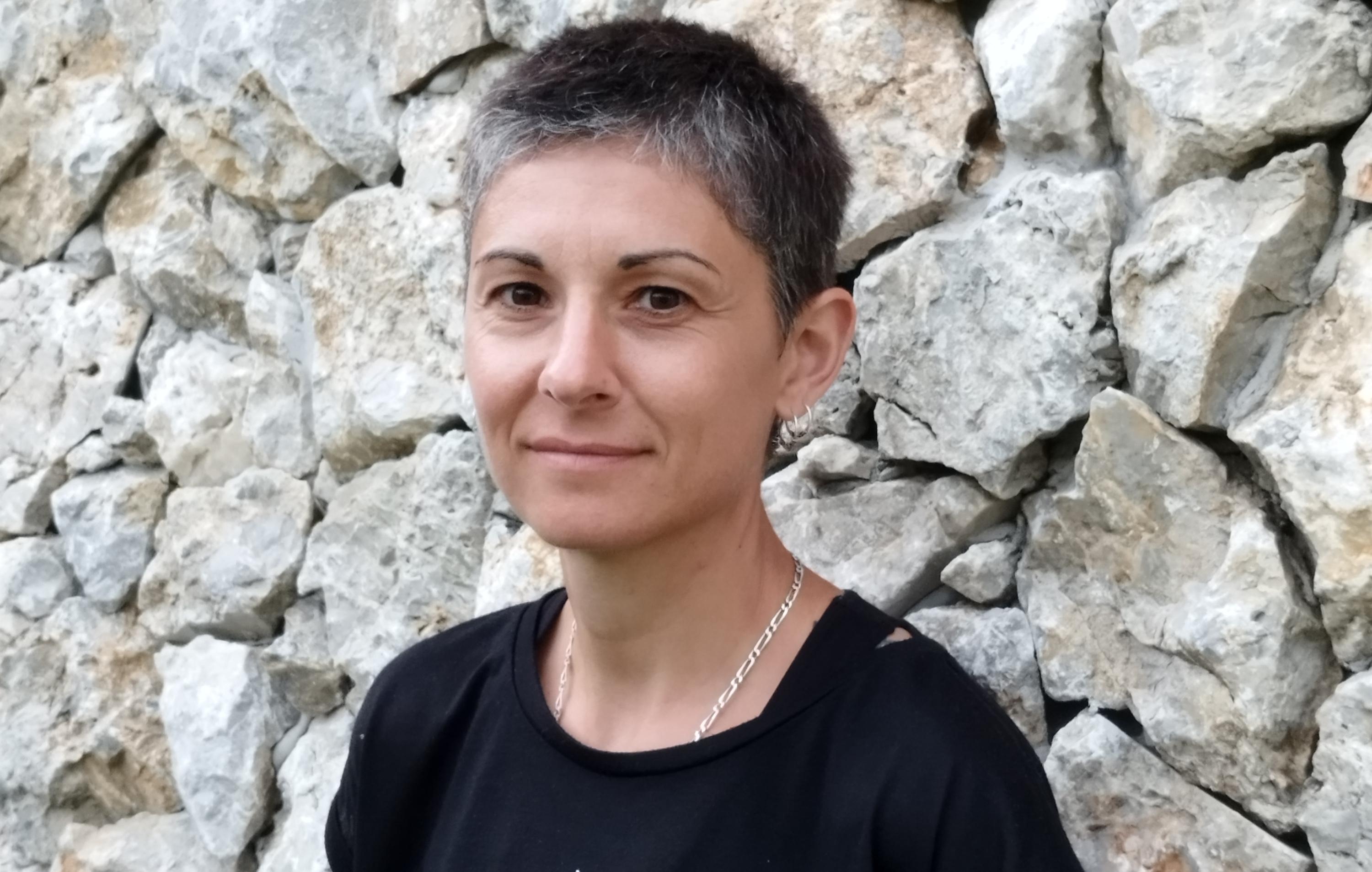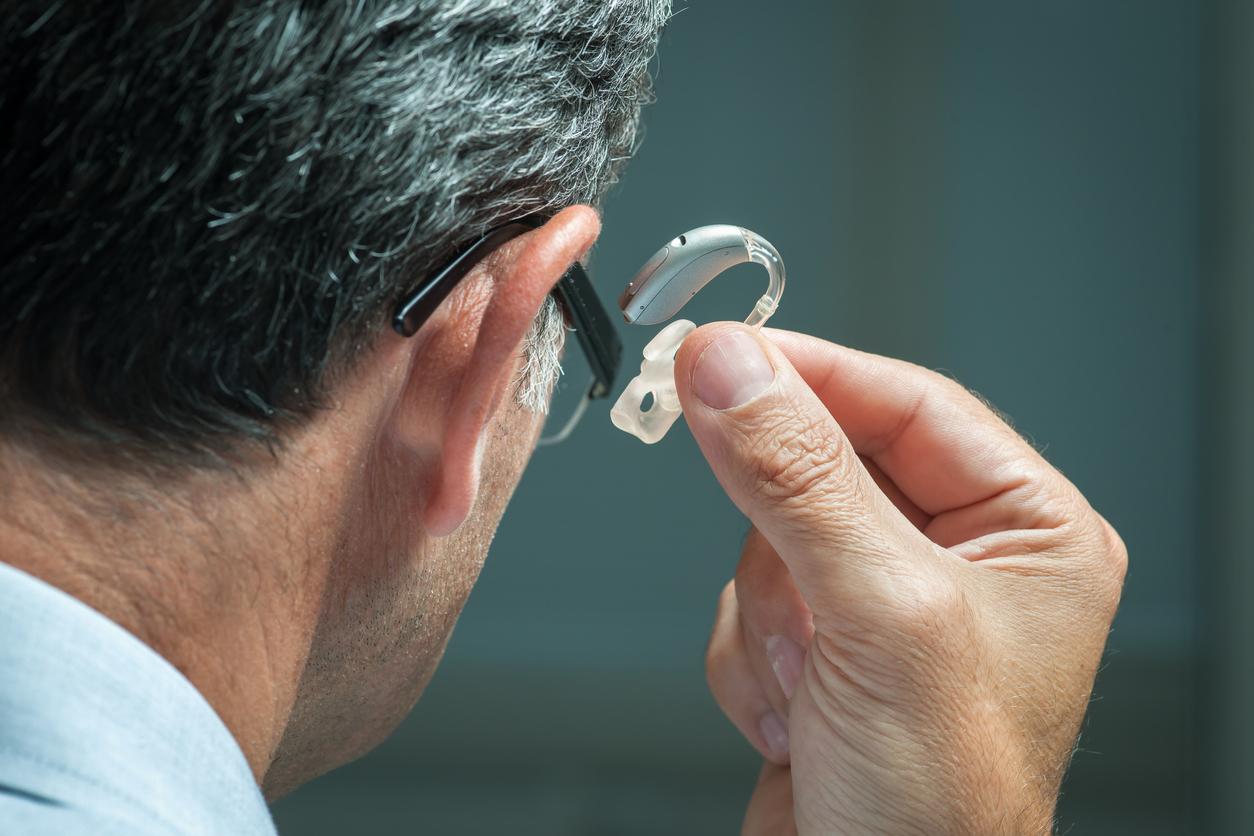Christine Buscailhon is the author of the book “When I had autism…” (ed. Le Souffle d’or) in which she recounts her journey, from the diagnosis of her son Léo to the radical change in life that the whole family made. to ease his troubles.
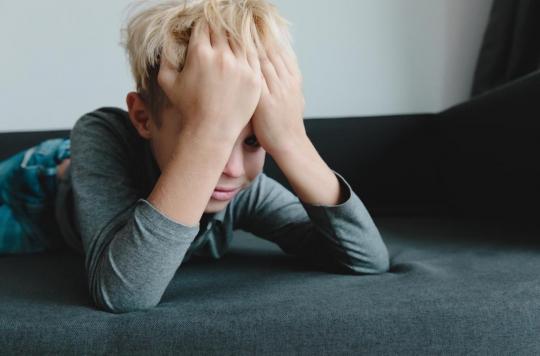
- The isolation of the child was gradual
- He was diagnosed at age 4
- The family moved to the provinces to promote the hygiene of the child’s life
Christine Buscailhon tells in her book When I had autism… (ed. le Souffle d’Or) her struggle to obtain a diagnosis of her son Léo’s autism and the life changes she made to alleviate his troubles.
How did Leo behave before the diagnosis?
He wasn’t there, he was lost in his world, it was hard to connect with him. He had a lot of motor difficulties and retardation: he couldn’t walk, he couldn’t speak. He spent his days sitting watching objects that flickered or rotated, such as the washing machine and fans. I remember when we were visiting a zoo when he was three years old, his older brother was feeding the animals, but he wasn’t there. There was a lack of interaction. He stopped growing and gaining weight around 7-8 months, his stomach was swollen. At that time, I was focused on these problems, the behavioral problems began to appear around 1 year. I could see that something was wrong, but his isolation came gradually. He has moved away from us day by day. It was by watching a report on autism that we understood that he had all the signs. It was quite obvious.
How long did it take to establish the diagnosis of autism?
The first to talk about the autistic disorder was the child psychiatrist, but she never brought up the subject again and did not make a diagnosis. She has seen, when he was 1 year old, that he was doing the butterfly with his arms, which is a characteristic syndrome of autism. But she didn’t say anything. So we took the initiative to knock on the doors of specialized organizations after talking about it with the teacher when she started school. He was finally diagnosed a year later, when he was 4 years old. For two years, an awareness effort has been made with general practitioners to improve their ability to detect these disorders, but it remains long and complicated.
You explain in your book that at the time of the diagnosis, your son was already better?
Yes. At the same time, he had major digestive problems, he had a swollen stomach, was very constipated. He was completely stuck, he wasn’t moving. I took him to see an osteopath who found him very tense and recommended that I have him tested for food intolerance. We then realized that he was allergic to casein (a protein present in milk, editor’s note) and to gluten. So I consulted a naturopath, we implemented a new diet and the results were spectacular. After three days of dieting, he started talking for the first time! We didn’t expect that, we wanted to solve his digestive problems and relieve him physically. But he spoke and was more attentive, we saw a real change. Today we know that deficiencies in the intestinal microbiota can aggravate the symptoms of autism and that a healthy diet is the preferred solution, which was not the case at that time. He was diagnosed a year later. I investigated, I read books, scientific studies, I documented myself, I exchanged with other parents. We continued on this path because the progress was amazing.
How has working on Leo’s archaic reflexes helped him socialize?
An occupational therapist told us about an association near Toulouse which worked on archaic reflexes (reflexes or involuntary automatic movements, characteristics of newborns, Editor’s note). We went there and met a team specializing in developmental delays. We worked with them on these archaic reflexes by doing exercises. His condition worsened, which proved something was up, and then improved dramatically. After that, he went to see another child for the first time because he was no longer afraid. Working on these primitive reflexes was the second phase of progress.
Have you also changed your environment to promote his health?
The move was decisive. When we became aware of the environmental impact, in particular pollution on autism, we left Paris. The connection with nature was important. I worked in communications, but could no longer promote food products like I did as I witnessed the health benefits of a balanced, organic diet. It made me sick. So I left marketing to open an organic, gluten-free bakery, then converted into a holistic therapist.
How did you realize in practice that a complete lifestyle change made it possible to alleviate your son’s autistic disorder?
He’s not off the autism spectrum, but he’s considerably better. We asked for new diagnoses from the official authorities, but they refused. We therefore have no official means of measuring its evolution. I nevertheless discovered the ATEC (for Tea autism Treatment Evaluation Checklist), an evaluation scale ranging from 0 to 180 based on a very simple questionnaire. Researchers believe that below 10, we are “neuro-typical”. Leo fluctuates between 14 and 18 depending on the day and the month. Before that, he was 124. So he went from severe autism to almost nothing. Of course, without the diet, the work on archaic reflexes, the weekly massages to circulate his energy in his body and the detoxifying foot baths to evacuate the heavy metals, he would undoubtedly have a higher score again.
How is Leo today?
He’s doing great, he’ll be 10 in June, he’s in CM1. At school level, he is integrated, he has friends and a normal schooling. In terms of understanding, everything is fine, he has a very pronounced logic, but it gets a little stuck in math (laughs). The mistress is admiring because he speaks, participates, recites his poems. Sometimes he is a little emotionally overloaded with the noise, the solicitation and the information. He may tire a little faster than the others, but the mistress knows that and leaves him alone when that’s the case.
Very characteristic of autistic people, he likes to know where we are going, that everything is organized. He also has areas of interest that I call “in-depth”: at one point, it was flags so he learned them all by heart, then the Highway Code, so he knows all the signs. He had a football phase during the World Cup, so he has memorized everything and knows all the scores of all the matches. At the moment, he is passionate about time travel (laughs). Tomorrow it will be something else. These phases last on average three or four months. Even if he is still forced to see a psychomotrician, he is fulfilled. The question we ask ourselves when we are a mother of an autistic child is: “How will he do without me?” I know he will manage, I am confident on that.
Why did you decide to write this book?
When I saw that he was starting to progress, I took notes. I started to write the first part of the book because I was very angry with the doctors who had not been able to help us. I self-published a first small book, but I thought it would be interesting to republish it enriched with new knowledge now that I have a more scientific vision of the thing. I still think we are lucky and I wanted to share my experience, pass on my knowledge.
.









